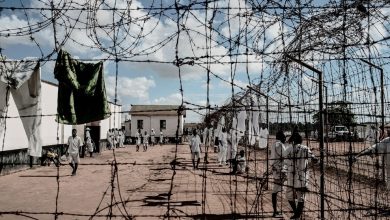The rot at Escom stinks
So much is being said about the Electricity Supply Corporation of Malawi (Escom), the country’s quasi-monopoly power supply utility. Unfortunately, most of the narrative is negative. From posting losses in 2017 to what appears to be organised fraud, abuse of billions of kwacha through misprocurements, fraud, corruption and abuse. Escom, in short stinks. Of course, it is not only Escom where the rot stinks. The Agricultural Development and Marketing Corporation (Admarc) and the Malawi Communications Regulatory Authority (Macra), water boards are others. They are cash cows of the ruling party. But here, I will focus on Escom.
Escom has been abused before. Without beating about the bush, what is really stinking at the power utility provider this time round is the extent of the rot. A 2016/17 National Audit Office shows that Escom and Admarc together abused K9.3 billion through procurement transactions the institutions could not account for. Escom ordered goods worth K8.3 billion from 23 suppliers without following procurement procedures and knowledge of key management. Really?
The firm procured goods in excess of K5 billion of what it required. Is it any wonder that when its former chief executive officer Evelyn Mwapasa refused to authorise payment for a certain order she was unceremoniously removed? Even before that a former finance director Bettie Mahuka resigned from her job when she could not stoop so low as to betray her conscience after being pressured to authorise alleged dubious payments. The new Escom board chair Thom Mpinganjira, an accomplished entrepreneur and business captain is on record as saying the K5 billion worth of items Escom procured may not be required in the next 10 years, if at all.
What has broken the camel’s back this time round is the theft of 3.8 million litres of diesel worth K1.9 billion from the organisation. To put the magnitude of the malfeasance into perspective, one tanker carries 50 000 litres. The theft of 3 800 000 litres means that 76 tankers of 50 000 litres of fuel each were stolen from Escom. This is the fuel which is supposed to power the gensets leased from Aggreko. Talking about the gensets, even before the dust has settled down regarding the suspicious manner they were procured, Escom now has this gargantuan ‘theft’ in its hands.
Then who is blamed for the theft of the 76 tankers? A security guard, truck driver and stores clerks! We must be joking. Seventy six tankers is massive and there is no way mere security guards, a truck driver and stores clerks could have masterminded such an operation. Where could they be keeping the fuel without anyone knowing about it? Was the fuel procured or someone just prepared some documents to indicate such and pocketed the money? And we are not even ashamed to be blaming these lesser mortals. There is no question that there is something much bigger and Malawians are being lied to.
And when such things happen, one wonders what the investigating agencies are doing. Is the Anti-Corruption Bureau doing anything about this? Are we serious about developing this country? The disappearance of the 76 tankers, followed by the arrest of mere guards, truck drivers and stores clerks is a clear example of the colossal levels of corruption in the country. Is this not confirmation of what Transparency International has been saying all along that Malawi has slipped on its Corruption Perception Index from 43 during its last ranking to 31 last year?
Then you hear someone saying the Malawi government is committed to fighting corruption. Are we surprised that Malawi is one of the three poorest countries in the world and only better than war-torn South Sudan and Somalia? All this is happening on the watch of someone. To say that someone is sleeping on the job is an affront to our intellect. President Peter Mutharika owes Malawians a better explanation about what is happening.
Truth be told, Escom’s inefficiency is because it is being abused, not so much by its corporate management as by its political masters.


